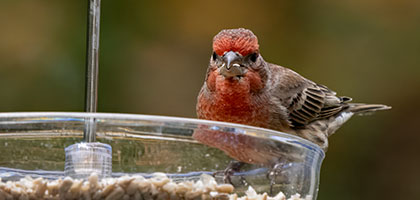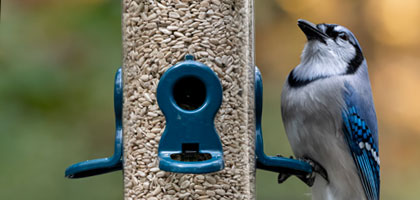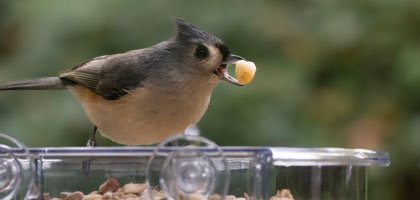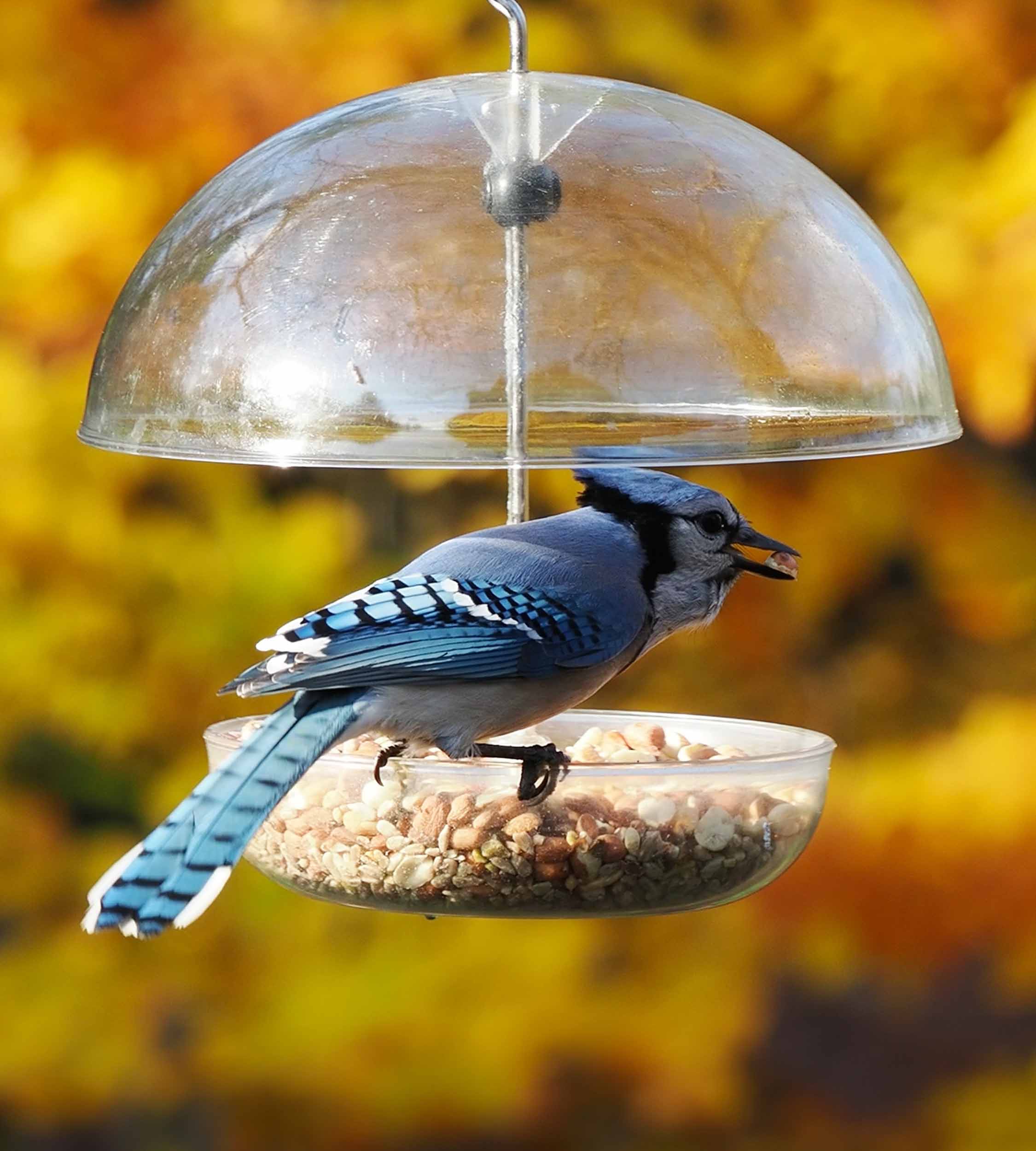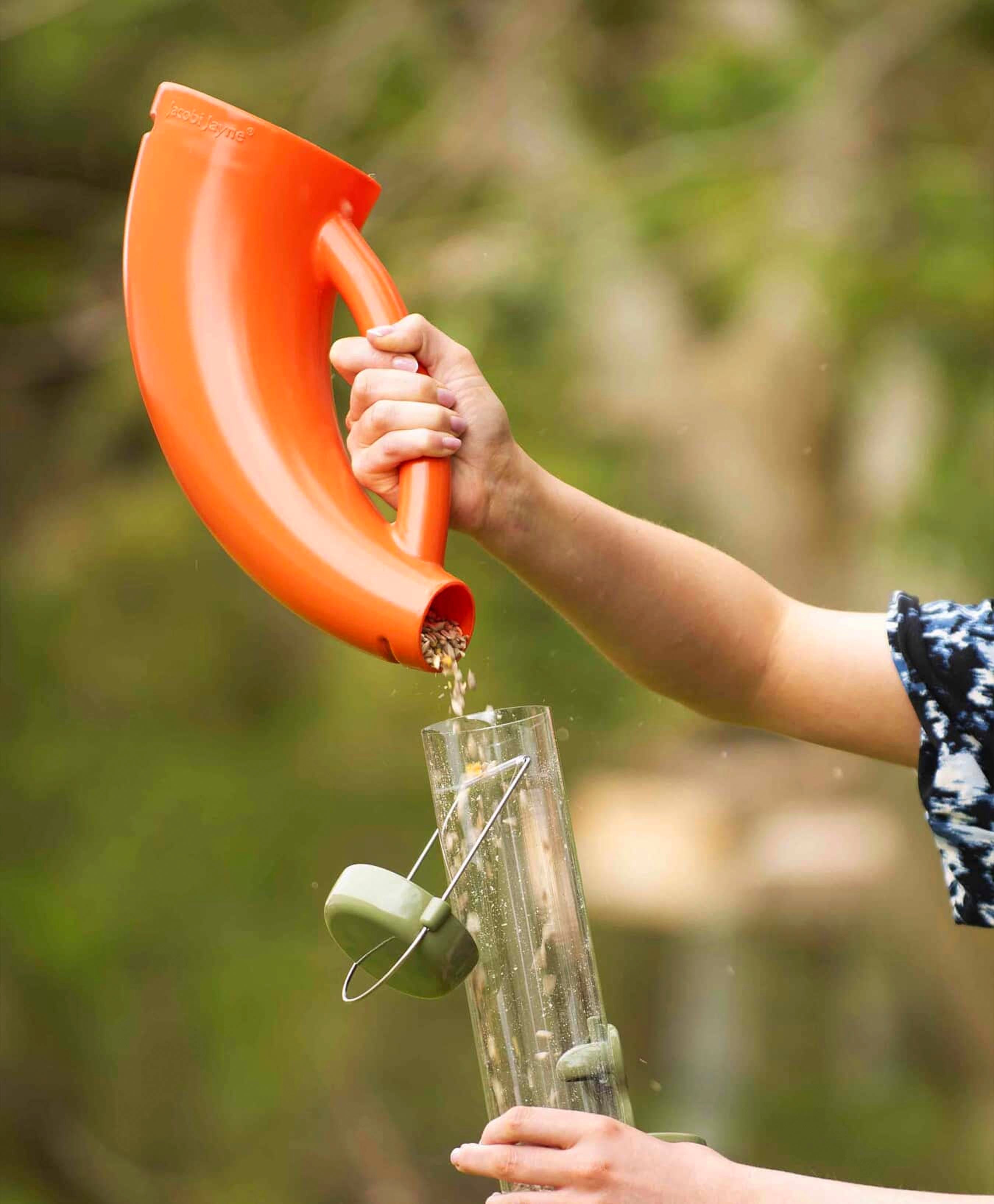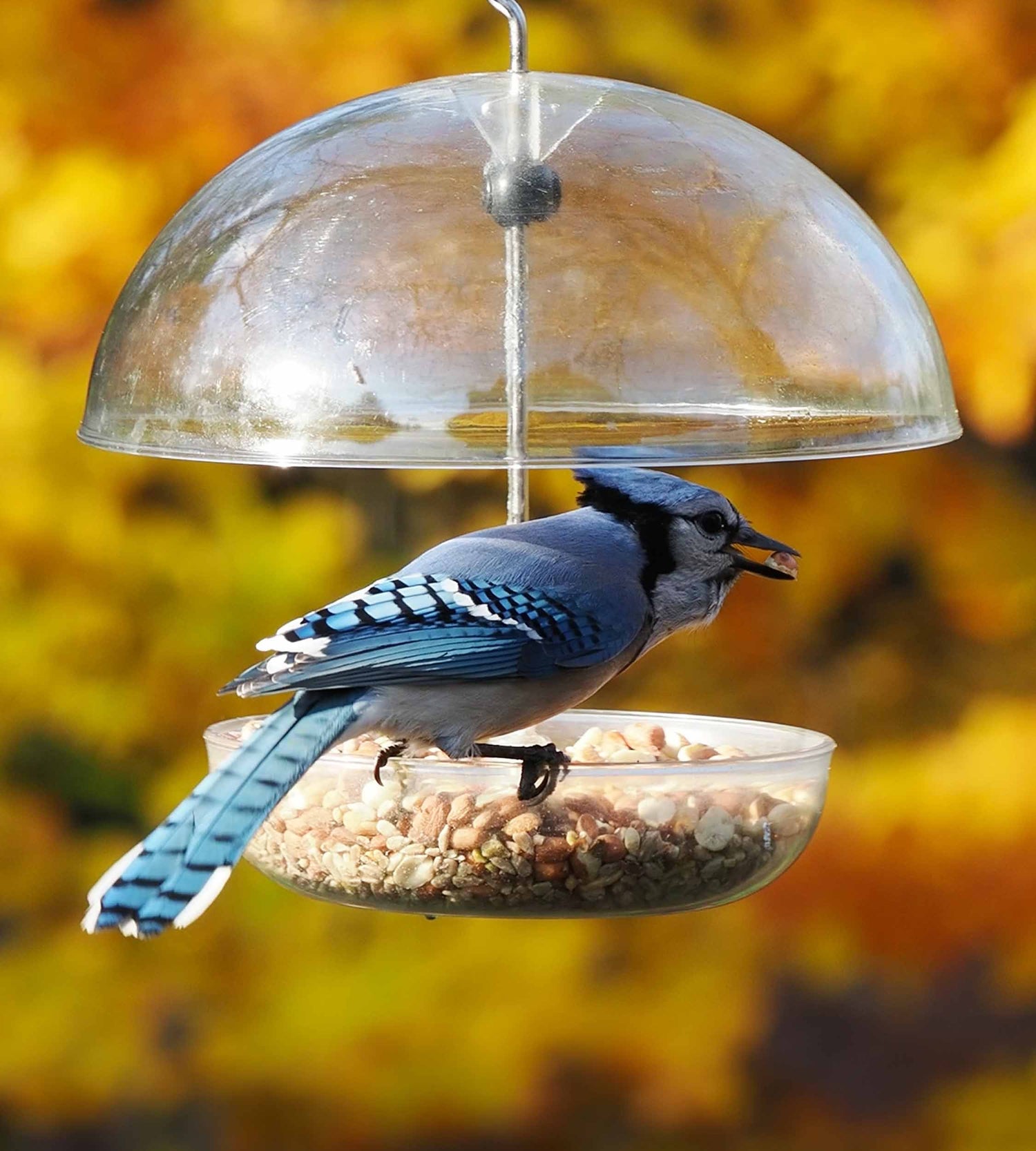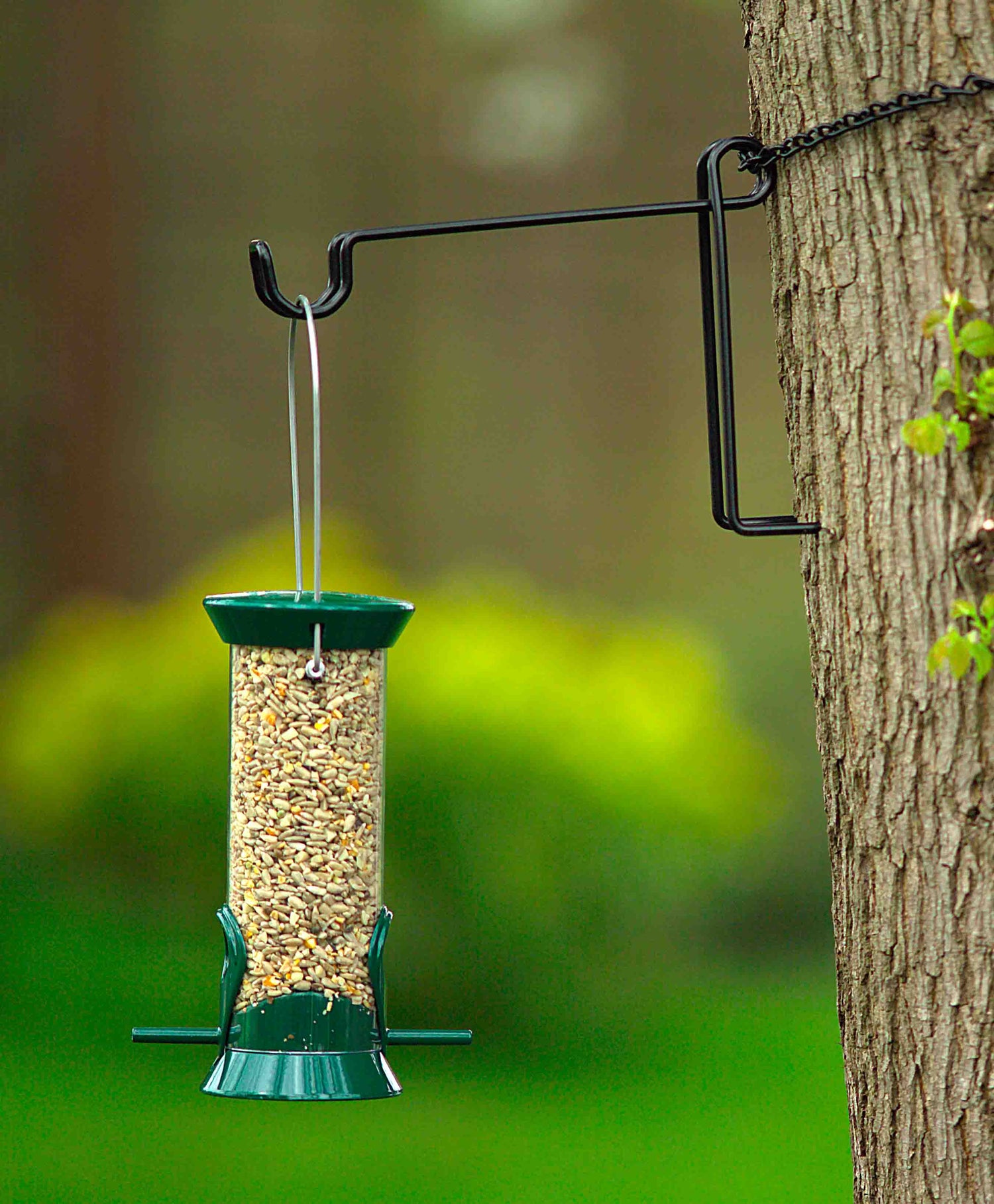Robins are a common sight in many backyards. Their vibrant red breasts and melodious songs make them a favorite among bird watchers and nature enthusiasts.
But what do these charming birds eat? Do they enjoy the bird food we often put out in our gardens?
This guide aims to answer these questions. We'll delve into the dietary habits of robins, exploring their natural diet and their preferences when it comes to bird food.
We'll also discuss the types of bird feeders that are most suitable for robins. And we'll address the common misconceptions about feeding these birds.
By understanding robins' diet, we can better cater to their needs. This not only enhances our bird watching experience but also supports the local bird population.
So, let's embark on this journey to understand robins' diet and answer the question: Do they eat bird food?
The Natural Diet of Robins
Robins are omnivorous birds, which means they eat a variety of food. Their diet includes insects, worms, and fruit. These foods provide the essential nutrients robins need.
Insects and worms are a significant part of their diet. They offer high protein, crucial for robins, especially during the breeding season. Earthworms, in particular, are a favorite among robins, especially after rain.
Robins also enjoy fruits, which supplement their diet with vitamins. Berries, such as blackberries and blueberries, are commonly eaten by robins. These fruits are abundant in the wild and easy for robins to forage.
Here's a quick list of key components of a robin's diet:
- Insects (beetles, grasshoppers)
- Worms (earthworms)
- Fruits (berries, apples)
- Occasionally seeds and nuts
Understanding their natural diet helps us recognize why certain types of bird food may or may not be appealing to robins. It’s crucial to consider these dietary preferences when attempting to feed them.
Misconceptions About Feeding Robins
Many people think robins eat traditional bird seed mixes like other backyard birds. This assumption is misleading. Robins rarely consume dry seeds, as they prefer live food.
Another common belief is that all bird feeders attract robins. This is not true. Robins are ground feeders and may ignore hanging feeders entirely.
Some assume robins will eat any bird food offered to them. However, robins are selective in their diet. They are unlikely to eat hard or unfamiliar seeds.
It's also important to note that robins don't rely on human-offered food as their primary diet. They continue to forage naturally, supplementing from feeders when needed.
Bird Food Preferences of Robins
Robins have distinct preferences when it comes to bird food. They enjoy soft and easy-to-eat options. Their preferences align closely with their natural diet.
Robins typically favor foods such as insects, worms, and ripe fruit. They find these in the wild. However, some store-bought bird foods can attract them as well.
For those looking to attract robins to their garden, consider offering the following:
- Mealworms
- Suet cakes or suet pellets
- Chopped, unsalted peanuts
- Sunflower hearts
- Fresh fruit
These food options cater to the robin's natural feeding habits. They provide essential nutrients and energy.
Understanding robins' food preferences can make your bird feeding efforts successful. This creates an inviting and suitable environment for them.
Mealworms: A Robin's Delight
Mealworms are a top choice for feeding robins. They closely mimic the insects robins seek in the wild. Rich in protein, mealworms cater to robins' dietary needs.
These worms can be dried or live. Live mealworms are often preferred by robins. They easily associate movement with food.
Offering mealworms on a platform or dish near the ground can attract robins. It aligns with their natural foraging behavior.
Suet Products and Robins
Suet products are high-energy treats for robins. They can be especially beneficial in colder months. Suet offers much-needed calories and nutrients.
Robins enjoy suet cakes, suet balls, or suet pellets. These can be mixed with seeds, nuts, or berries to entice them. Ensure the suet is soft enough for easy eating.
Place suet offerings on the ground or in a platform feeder. This encourages robins to stop by and feed, aligning with their ground-foraging habits.
Fresh Fruit in a Robin's Diet
Robins have a penchant for fresh fruit. It mirrors the berries they often eat in the wild. Offering fruit can attract these charming birds to your yard.
Chopped apples and berries are excellent options. Ensure they are fresh and free from mold. Fruit provides natural sugars and hydration.
Robins are likely to consume fresh fruit spread on a flat surface. Placing fruit pieces in a dish or on the ground can increase their visits. Make sure to remove uneaten fruit to maintain hygiene.
Feeder Types for Robins
Choosing the right feeder is crucial for attracting robins. These birds prefer ground-level feeding. Their traditional feeders may not be appealing.
Robins typically skip hanging feeders in favor of accessible ones. Ground or platform feeders suit them best. These types mimic how they forage naturally.
Consider using the following feeder types to attract robins:
- Ground feeders
- Platform feeders
- Open dish feeders
Utilizing the right feeders can enhance your bird-watching experience. It ensures robins visit your garden regularly.
Ground Feeders and Platform Feeders
Robins favor ground feeders. These allow robins to eat comfortably. They mimic the birds' natural behavior.
Platform feeders are also effective. They provide a stable eating surface. Both feeder types cater to robins' foraging habits.
Why Some Feeders Don't Attract Robins
Not all feeders attract robins. Hanging feeders can deter them. Robins prefer a more stable surface to eat from.
Small bird feeders often aren't suitable. Robins seek out space and comfort. Providing this can encourage their visits.
Protecting Robins from Predators and Pests
Ensuring robins are safe is vital when feeding them. Predators like raccoons and squirrels can pose threats. These animals may disrupt feeding areas or harm birds.
To protect robins, place feeders in open areas with good visibility. This makes it easier for robins to spot approaching threats. Keeping feeders away from dense shrubs also reduces hiding spots for predators.
Regularly clean the feeding area to deter pests. Leftover food can attract unwanted animals. Secure trash and food storage to prevent easy access for raccoons.
Finally, consider using baffles on poles to deter climbing pests. Keeping the feeding zone safe ensures that robins can feed peacefully without unnecessary risks.
Best Practices for Feeding Robins
Feeding robins requires careful consideration of their natural habits and preferences. Begin by offering suitable food that mirrors their diet in the wild. This approach supports their well-being.
Ensure you provide fresh, high-quality food sources. Regularly check and replace any spoiled food. Maintain cleanliness to promote a healthy feeding environment.
Key Best Practices:
- Use live or dried mealworms as a primary food source.
- Offer fresh fruit such as berries and apples for variety.
- Place food on platform feeders or directly on the ground.
- Avoid scattering seeds and mixes that robins might not eat.
Observe robins' feeding habits to adjust your strategy. This attentive approach helps attract more robins and enhances your bird-watching experience.
Conclusion: Supporting Robins Through Responsible Feeding
Feeding robins is a rewarding endeavor that connects us with nature. By mimicking their natural diet, we support their health and vitality.
Responsible feeding practices benefit not only robins but the broader ecosystem. Your efforts contribute to sustaining and supporting local wildlife populations effectively.
